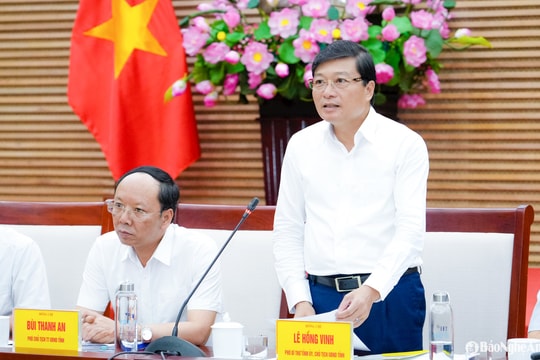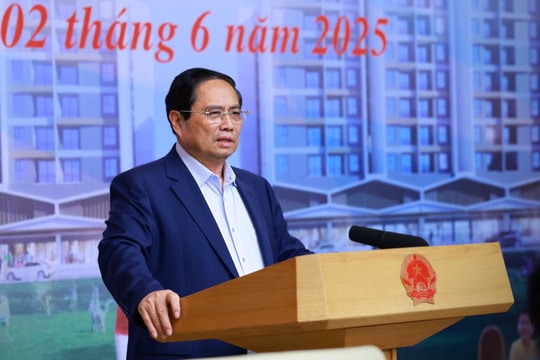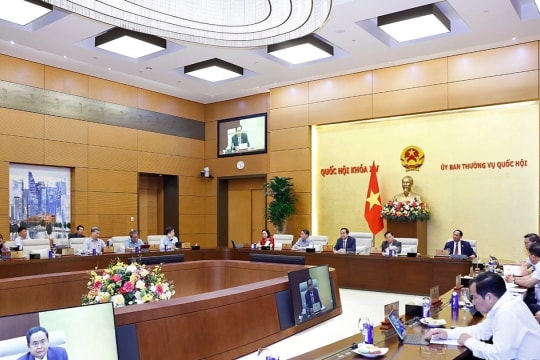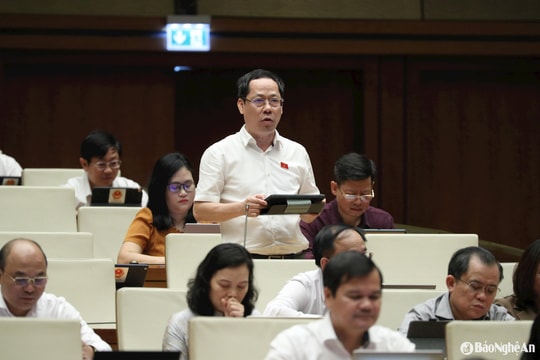After the merger, the new Chairman of the Provincial and Commune People's Committee will have more authority.
The Minister of Home Affairs said that the draft Law on Organization of Local Government (amended) was revised to increase the authority of the chairmen of the People's Committees at the provincial and commune levels after the merger.
Continuing the 46th session this afternoon, the National Assembly Standing Committee gave opinions on receiving, explaining, and revising the draft Law on Organization of Local Government (amended).
Increase the authority of the Chairman of the People's Committee at the provincial and commune levels
Minister of Home Affairs Pham Thi Thanh Tra, authorized by the Prime Minister, presented a report on the reception, revision and completion of the draft Law on Organization of Local Government (amended).
Based on the opinions of National Assembly deputies, the Government has revised and completed regulations to ensure the clear establishment of a two-level local government organization model (provincial and communal levels).
At the same time, the Government also added a number of criteria to clarify regulations on special administrative-economic units to distinguish them from special zones.
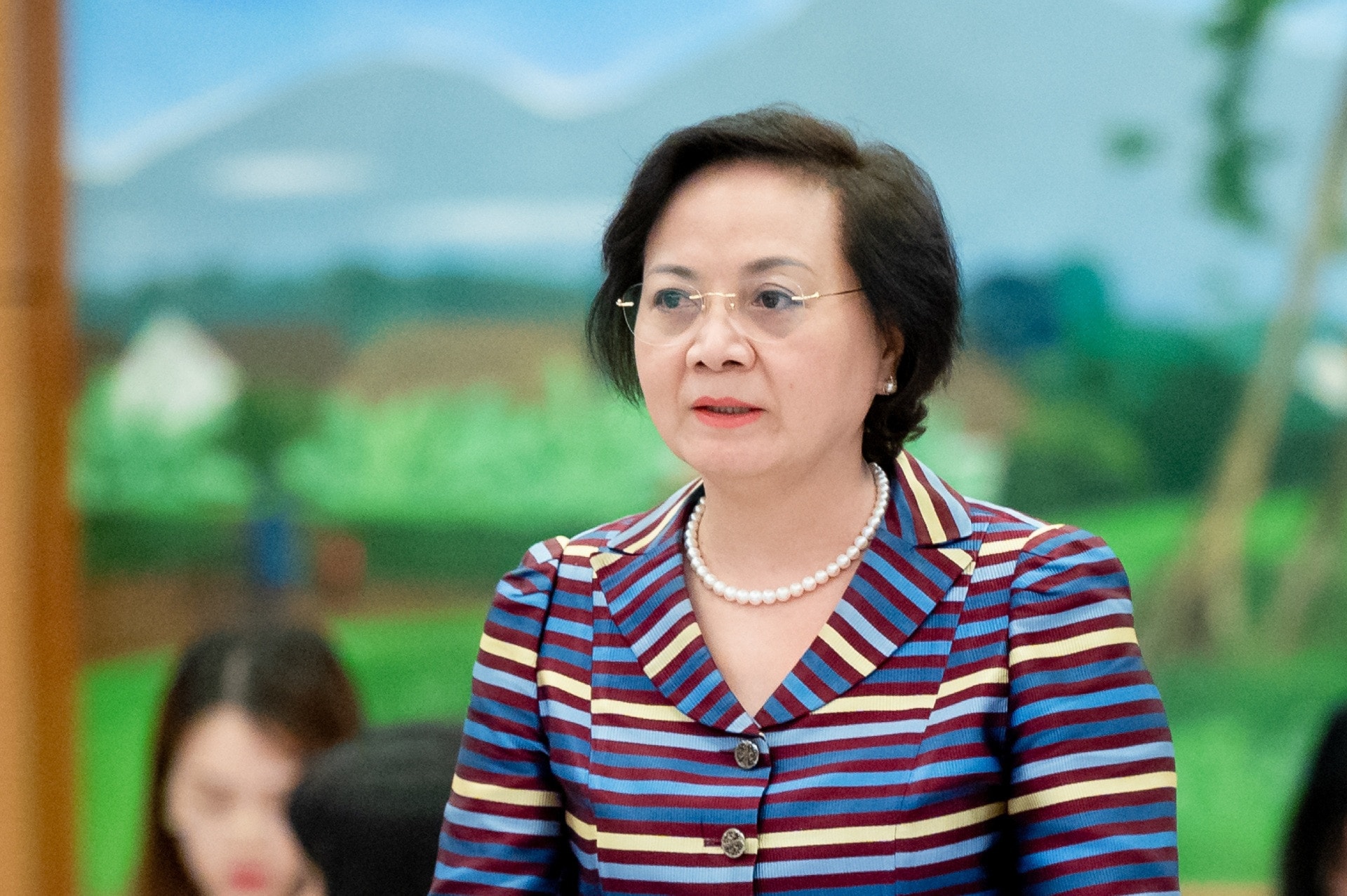
Specifically, the Government decided to empower local authorities to proactively resolve issues related to two or more administrative units, in order to minimize the situation of shifting responsibility to higher levels and improve operational efficiency at the commune level.
In order to strengthen the role and responsibility of the head according to the suggestions of the delegates, the draft law has completed the content of the distinction between the general tasks and powers of the People's Committee and the specific tasks and powers of the Chairman of the People's Committee in the direction of increasing the authority of the Chairman of the People's Committee at the provincial and commune levels.
According to the draft law, the provincial People's Committee has 12 tasks and powers; the Chairman of the provincial People's Committee has 23 tasks and powers; the commune-level People's Committee has 10 tasks and powers; the Chairman of the commune-level People's Committee has 17 tasks and powers.
In particular, the draft law supplements the regulation that the Chairman of the People's Committee is authorized to decide on behalf of the People's Committee on matters under the People's Committee's authority and report to the People's Committee at the nearest meeting, except for matters that the law stipulates the People's Committee must collectively discuss and decide.
Regarding some opinions suggesting clearly listing "necessary cases" in which the People's Committee and the Chairman of the Provincial People's Committee directly direct and manage the settlement of issues within the duties and powers of the departments or the Chairman of the Commune People's Committee, the Minister of Home Affairs said that listing specific cases in the draft law would not be complete, could limit the scope of regulation or omit cases arising in practice.
"The application for each specific case will be decided by the provincial People's Committee and the provincial People's Committee Chairman, ensuring flexibility in directing and implementing work in the locality in a smooth, effective and efficient manner, without affecting the provision of public services to people and businesses at the commune level, especially in the transition period," Ms. Tra emphasized.
More than 1,000 tasks are decentralized and delegated to localities.
The draft amended law also supplements regulations on the subject of the provincial People's Council being decentralized to the People's Committee of the same level and the People's Council of the commune level, to ensure consistency with the provisions of current laws and current practices of localities.
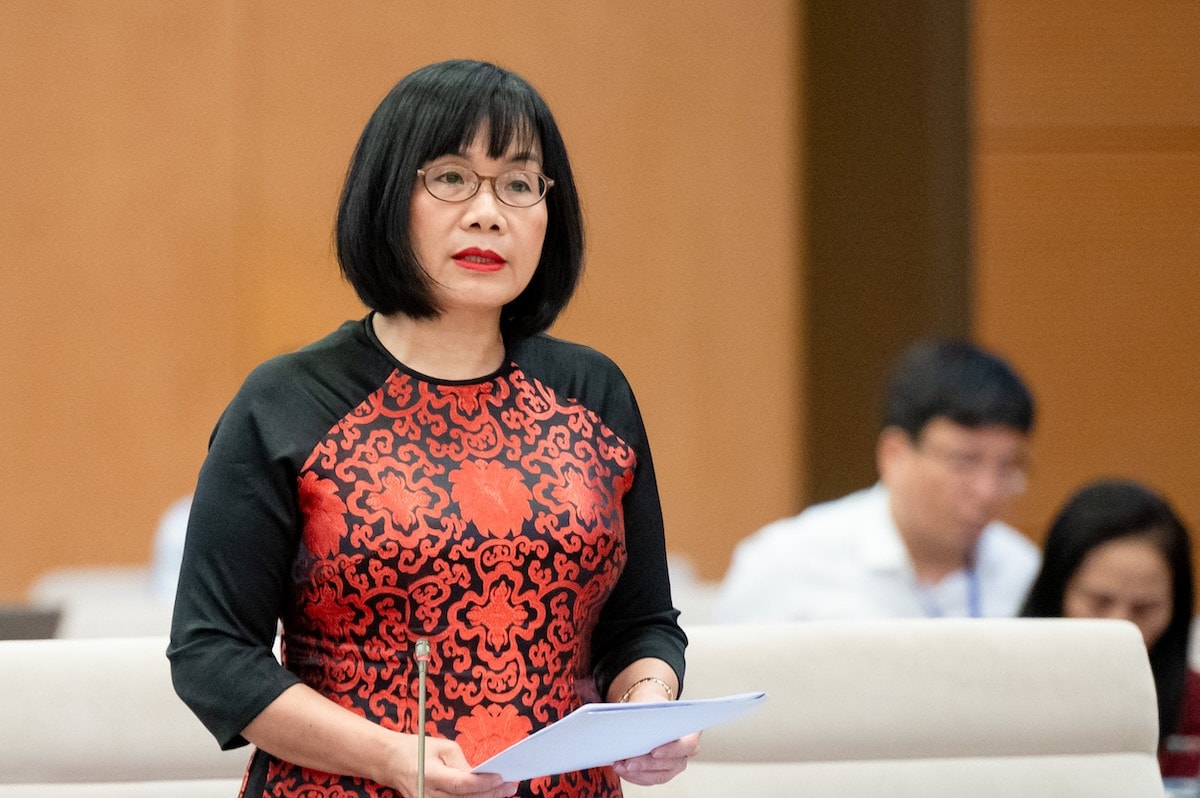
According to the Minister of Home Affairs, through a preliminary review, there are more than 1,000 tasks decentralized to localities, of which 40% are tasks of the People's Council, the remaining 60% are decentralized to the Chairman and People's Committee.
"With such a huge workload, the People's Council will be overloaded. At the same time, the Provincial People's Council is also facing great demands for innovation," said Ms. Tra.
At the same time, the Minister of Home Affairs also said that this is also a demonstration of reform thinking on power organization, in line with the current international trend when decentralizing to local authorities to decide on issues related to national and people's livelihood, to ensure serving the people in a timely, flexible, dynamic, creative and best manner.
Examining the above contents, Chairman of the Law and Justice Committee Hoang Thanh Tung said it is necessary to carefully consider allowing the Provincial People's Council to decentralize to the People's Committee of the same level or the Commune People's Council.
According to the Chairman of the Committee on Law and Justice, in cases where the Government and local authorities see that there are things that the People's Committee or People's Council at the commune level can do better, they need to propose to the competent authority to adjust the decentralization of the People's Council in the law, National Assembly resolution or corresponding decree of the Government.
Regarding this content, Deputy Minister of Justice Dang Hoang Oanh added that expanding decentralization as in the draft law will help the People's Council become more flexible and proactive, closely linking policy making with implementation, enhancing the autonomy and accountability of local authorities and allowing the People's Council to effectively maintain its supervisory role.

